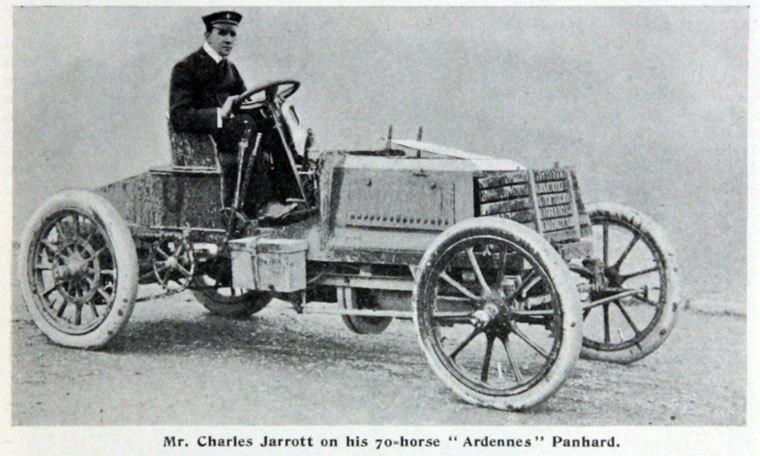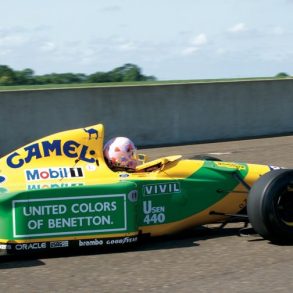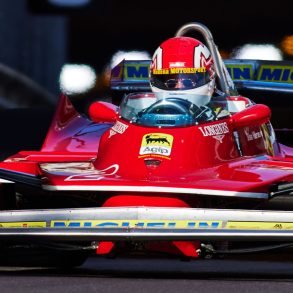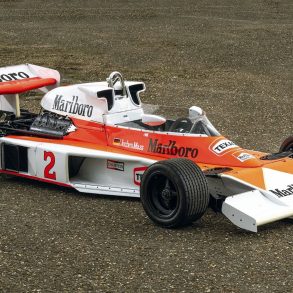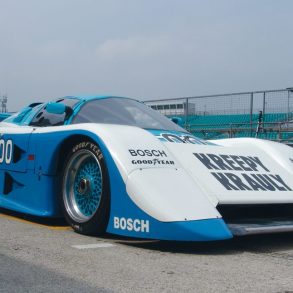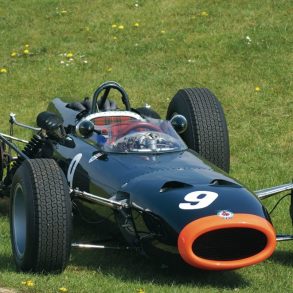I’ve actually started watching Formula One races again—that is, now that results no longer seem to be predetermined. While the finishers on the podium have refreshingly changed, I’ve quickly learned that much of the commentary really hasn’t. As Mike Lawrence insightfully pointed out in his column a couple of months ago, there seems to always be this urge to make today’s racing more significant and important than any other period in the sport’s history.
During one of the recent telecasts, one of the announcers marched into a brief soliloquy on the incredible physical and mental demands on the modern Formula One driver and how the demands of modern Formula One are far harder than anything any driver had experienced previously. As our friends in the U.K. would say, Bullocks!
Yes, today’s modern Formula One cars subject the drivers to G-forces previously unfathomable to the drivers of yesteryear. However, let’s not lose sight of the fact that today’s drivers also don’t have to deal with all the same stresses and circumstances of their forebearers. A perfect example of this is the indefatigable Charles Jarrott.
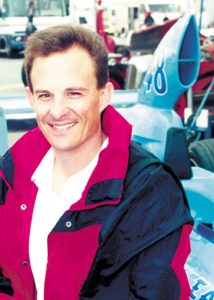
Editor
In 1902, Jarrott and his riding mechanic, George Du Cross, entered their 13.72-liter (that’s not a typo, you read correctly, 13-liter!) Panhard in the Paris-Vienna road race that ran concurrently with that year’s Gordon Bennett Trophy race. Imagine the shear punishment of driving a wood-wheeled, unwieldy, 13-liter beast, at speeds of as much as 80 mph on rural dirt roads intended for ox and cart. And this without the necessities of a personal masseuse, personal trainer, or even, God forbid, your personal macrobiotic chef!
On the second day, just outside of the race’s overnight stop at Bregenz, Austria, the Panhard’s wooden chassis broke in two. By today’s standards, race over, correct? A hot shower and a quick Learjet ride back to Monaco in time for dinner—but not for our dauntless Messrs. Jarrott and Du Cross. Jarrott retired to his hotel room that night scheming that if he could just find some appropriate wood, he might be able to mend his Panhard’s ailing frame. According to Jarrott, “I was getting into bed and turned to put out the light, when my eye fell upon a stand used for carrying a tray, and in a second I perceived that the four legs of that stand were exactly what I wanted.” After rousing Du Cross, the pair proceeded to retrieve their tools and dismantle the stand. However, it being made of hardwood, the pair had difficulty drilling the holes necessary to affix the wood to the Panhard’s frame, so, as a way of getting more leverage, Du Cross propped the wood against the hotel room’s plaster-covered walls. Jarrott remarked, “He was delightfully successful, but the trouble was that he drove it through too far, and brought down half the plaster. And then, in endeavoring to show how easy it was on another portion of the wall, he succeeded in bringing that down also.” Adding injury to insult, Jarrott then proceeded to have his turn at drilling the offending wood and managed to instead, drill a hole in his arm, which resulted in the hapless pair then needing to shred all the bed sheets in an attempt to stem Jarrott’s bleeding! Can’t you just imagine Michael Schumacher and Ross Brawn in a hotel room with an errant piece of carbon fiber and a cordless Makita drill?
The next day, our dashing duo left at first light (undoubtedly to avoid the screams of the hapless hotel owner!) and set out for Vienna. Upon arriving in Salzburg, they were greeted by the tragic news that they had apparently died in an accident the previous day, but they took the news with great aplomb and forged on towards Vienna nonetheless.
How much harder could things get, right? Well, later that day the Panhard’s radiator began to leak so badly that Du Cross actually had to crawl out onto the hood—at speed!—and ride there for many miles while holding a towel around the scalding hot radiator cap. Finally, with only three miles to go, the gearbox decided that it had had enough of riding in a badly cattywhompuss frame and promptly proceeded to cough its mechanical guts all over the dirt road. What was Jarrott to do? Hitch a ride back to the paddock on a marshall’s motor scooter? Perish the thought…do you think him a quitter? He instead commandeered a bicycle and rode off in search of help.
When he returned, he found that the ever-resourceful Du Cross had tied the Panhard to the back of a horse-drawn cart and was being towed to the nearby finish line. After all the effort, heartache and, quite frankly, bloodshed of the previous day, Jarrott wanted to finish the race with some modicum of dignity, so he started the big 13-liter engine, cut the tow rope and coasted the Panhard across the finish line…only for the exhaust system to fall off! However, he did finish the 1902 Paris-Vienna race. And to think today’s drivers cry how hard it is to drive their cars when the power-assisted steering takes a dump!


![[Collection Jules Beau. Photographie sportive] : T. 19. Année 1902 / Jules Beau Jules Beau (1864-1932)](https://dev.sportscardigest.com/wp-content/uploads/2005/07/Jarrott.jpg)

